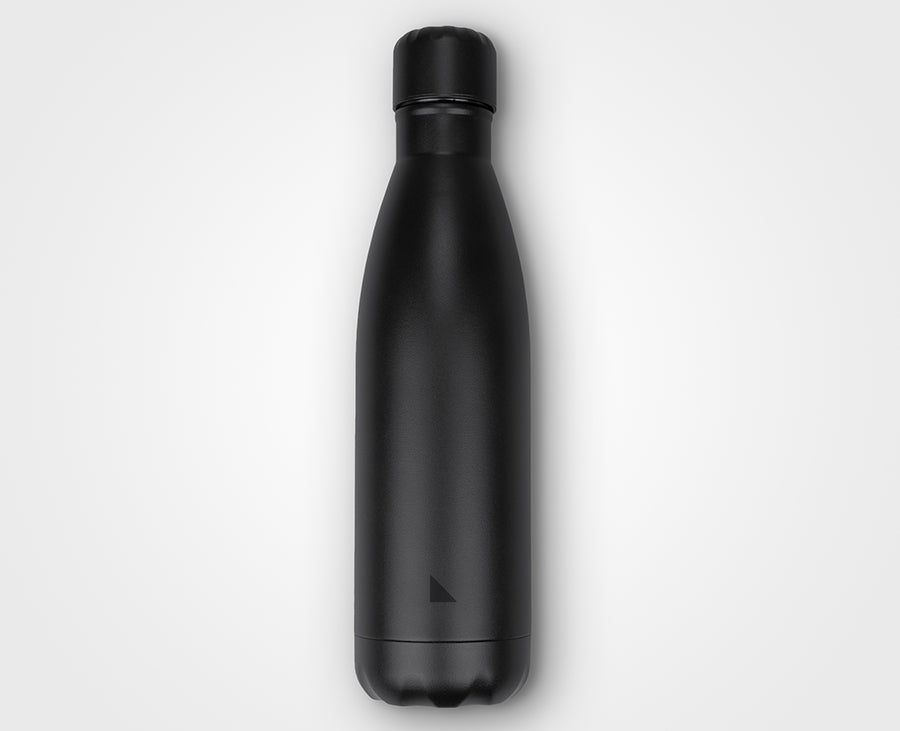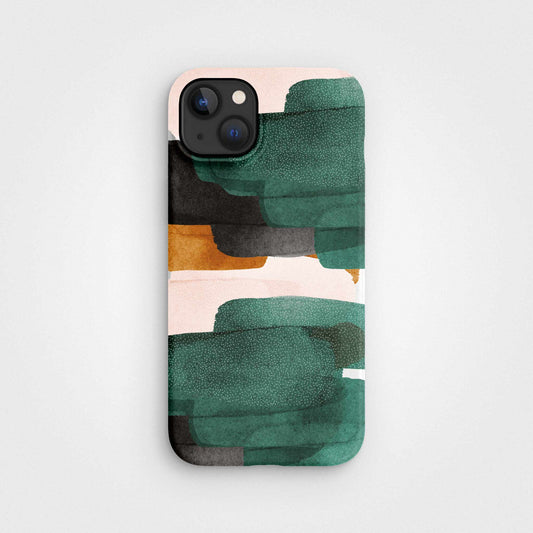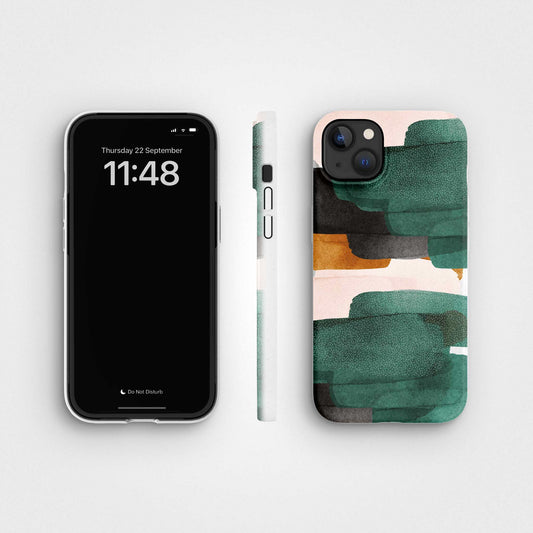Umweltfreundlich bedeutet laut einer schnellen Google-Suche "nicht schädlich für die Umwelt". Aber was bedeutet das wirklich? Was ist umweltfreundlich und was bedeutet es wirklich, einen umweltfreundlichen Lebensstil zu führen und umweltfreundliche Entscheidungen zu treffen? In diesem Artikel befassen wir uns mit dem Thema Umweltfreundlichkeit und versuchen, die Frage zu beantworten, die heutzutage in aller Munde ist: Was ist umweltfreundlich?
Schnelle Links
-
Umweltfreundliche Bedeutung - die Definition von umweltfreundlich
-
Umweltfreundliche Materialien und Produkte
-
Umweltfreundlich vs. grün vs. nachhaltig
-
FAQ über Umweltfreundlichkeit
Was bedeutet "umweltfreundlich"?
Damit wir eine sinnvolle Diskussion über dieses Thema führen können, müssen wir zunächst wissen, was umweltfreundlich ist. Im Allgemeinen wird der Begriff "umweltfreundlich" für Produkte oder Aktivitäten verwendet, die nur minimale Auswirkungen auf die Umwelt haben. Dies kann sich auf ihre Herstellung, Verwendung und Entsorgung beziehen. Umweltfreundliche Produkte benötigen in der Regel weniger Energie und Wasser für die Herstellung als herkömmliche Alternativen, halten länger als andere Produkte, verringern den Ausstoß von Treibhausgasen und reduzieren oder vermeiden die Verwendung giftiger Chemikalien. Um wirklich umweltfreundlich zu sein, sollte ein Produkt auch nur minimale Auswirkungen auf die Ressourcen Land, Luft und Wasser haben. Beispiele für umweltfreundliche Produkte sind Bio-Lebensmittel, energieeffiziente Geräte oder Designs, die die Abfallvermeidung fördern.
Was ist die Definition von "umweltfreundlich"?
Die grundlegende Definition von "umweltfreundlich" lautet: "nicht schädlich für die Umwelt" ist ein Anfang, hilft uns aber nicht wirklich weiter. Diese Antwort wirft sogar noch mehr Fragen auf, da sie nicht sehr detailliert darauf eingeht, was schädlich ist oder was wir überhaupt als "Umwelt" bezeichnen.
Umweltfreundlich vs. umweltfreundlich - was ist der Unterschied?
Obwohl die Begriffe "umweltfreundlich" und "umweltschonend" oft synonym verwendet werden, haben sie unterschiedliche Bedeutungen. Umweltfreundlich bezieht sich auf Produkte oder Aktivitäten, die der Umwelt nur minimalen Schaden zufügen, während sich umweltfreundlich in der Regel auf ein Produkt oder eine Aktivität bezieht, die nicht nur umweltfreundlich, sondern auch nachhaltig ist, d. h. die natürlichen Ressourcen nicht erschöpft und die Fähigkeit künftiger Generationen, ihre eigenen Bedürfnisse zu befriedigen, nicht beeinträchtigt. Umweltfreundliche Produkte und Aktivitäten zielen darauf ab, ein Gleichgewicht zwischen ökologischen, sozialen und wirtschaftlichen Faktoren zu wahren. Sie berücksichtigen häufig die Prinzipien der erneuerbaren Energien, der Abfallvermeidung und des Umweltschutzes, um eine langfristige ökologische Nachhaltigkeit zu gewährleisten. Obwohl diese beiden Begriffe oft synonym verwendet werden, gibt es einen feinen Unterschied zwischen ihnen.
Umweltfreundlich bezieht sich auf Produkte oder Aktivitäten, die der Umwelt nicht schaden, während sich umweltfreundliche Verfahren und Materialien über ihren gesamten Lebenszyklus - von der Produktion bis zur Entsorgung - positiv auf die Umwelt auswirken. Ein umweltfreundliches Produkt kann zum Beispiel aus recycelten Materialien hergestellt werden und bemüht sich um eine minimale Umweltbelastung während seiner Nutzung.

Bei einem umweltfreundlichen Produkt hingegen werden recycelte Materialien verwendet und nachhaltige Produktionsmethoden angewandt, die Energie sparen und Abfall reduzieren. Ein umweltfreundliches Produkt bevorzugt erneuerbare Ressourcen, minimiert Emissionen und Schadstoffe während seines gesamten Lebenszyklus und strebt einen möglichst kleinen ökologischen Fußabdruck an. Und das Tüpfelchen auf dem i: Ein umweltfreundliches Produkt ist so konzipiert, dass es leicht recycelt oder biologisch abgebaut werden kann, sobald es seinen Zweck erfüllt hat. So wird die Kreislaufwirtschaft gefördert und die Belastung der Mülldeponien verringert.
Wenn Sie verstehen wollen, was umweltfreundlich und umweltschonend wirklich bedeutet, lesen Sie unser Greenwashing-Wörterbuch. Es ist eine hilfreiche Ressource, die die Konzepte auf unkomplizierte und leicht verständliche Weise aufschlüsselt.
Wir möchten Sie ermutigen, Ihr Bewusstsein für Nachhaltigkeit zu schärfen und Greenwashing auf Anhieb zu erkennen, damit Sie die trügerischen Marketingpraktiken der Neuzeit erkennen können. Unser Ziel ist es, die Menschen zu umweltbewussten Verbrauchern zu machen und hinter die falsche Fassade der Marketing-Schlagworte zu blicken.
Natürliche Ressourcen - was bedeutet das?
Natürliche Ressourcen sind Materialien und Bestandteile, die in der Umwelt vorkommen. Jedes vom Menschen hergestellte Produkt besteht aus natürlichen Ressourcen (auf seiner grundlegenden Ebene). Eine natürliche Ressource kann als eigenständige Einheit vorhanden sein, wie z. B. Süßwasser und Luft sowie ein lebender Organismus, wie z. B. ein Fisch, oder sie kann in einer alternativen Form vorliegen, die verarbeitet werden muss, um die Ressource zu erhalten, wie z. B. Metallerze, Öl und die meisten Formen von Energie. Natürliche Ressourcen werden aus der Umwelt gewonnen. Beispiele für natürliche Ressourcen sind Luft, Wasser, Boden, Mineralien, Pflanzen und Tiere. Erneuerbare Ressourcen sind Ressourcen, die sich im Laufe der Zeit erneuern können; Beispiele für erneuerbare Ressourcen sind Solarenergie, Windenergie und Erdwärme.

FAQ zur Umweltfreundlichkeit
Die häufigsten Fragen zur Umweltfreundlichkeit im Internet beziehen sich auf bestimmte Materialien:
- Ist Glas umweltfreundlich?
- Ist Gummi umweltfreundlich?
- Ist Bambus umweltfreundlich?
Das sind zwar interessante Fragen, aber sie sind schwer zu beantworten. Alles wirkt sich in irgendeiner Weise auf die Umwelt aus. Um zu wissen, ob etwas umweltfreundlich ist, müssen wir es mit den Alternativen vergleichen.
Welche Materialien & Produkte sind umweltfreundlich?
Bei agood company bemühen wir uns, umweltfreundliche Produkte anzubieten. Wir beziehen viele unserer Materialien aus natürlichen und erneuerbaren Quellen, darunter Bio-Baumwolle, Bambus, Stein und Leinsamen. Unser Ziel ist es, schöne Produkte anzubieten, die auch gut für die Umwelt sind. Unsere Materialien sind so konzipiert, dass sie sich an der Idee einer nachhaltigeren & umweltfreundlichen Zukunft orientieren.
Ist Plastik umweltfreundlich?
Meistens nicht. Herkömmliches Plastik wird aus Kohlenwasserstoffen hergestellt, einem nicht erneuerbaren Material, das in einem schmutzigen Prozess, der viel Energie verbraucht und Treibhausgase freisetzt, aus dem Boden geholt werden muss. Außerdem dauert es, wie Sie wahrscheinlich wissen, lange, bis sich Plastik abbaut, und es verbleibt in der Umwelt, wo es nicht mehr erwünscht ist, findet seinen Weg in alle Ecken der Welt und verschmutzt Ökosysteme, auf die wir und Tiere angewiesen sind. Einige Studien haben gezeigt, dass Plastik den Menschen schaden kann, weil es unsere Hormone durcheinanderbringt. Also nein, herkömmliche Formen von Plastik sind definitiv nicht umweltfreundlich.
Es wurden jedoch einige Alternativen entwickelt, die erneuerbare Materialien und saubere Produktionstechniken verwenden und nach dem Gebrauch sicher kompostiert werden können. Wir verwenden diese neuen Formen zur Herstellung unserer pflanzlichen Handyhüllen.
Ist Silikon umweltfreundlich?
Silikon ist ein synthetisches Polymer, das in den letzten Jahren für die Verwendung in Küchengeräten immer beliebter geworden ist. Es ist sehr flexibel, aber dennoch haltbar und hält unglaublichen Belastungen stand.
Man kann es in den Gefrierschrank legen, in den Ofen schieben, auf alle erdenklichen Arten biegen und verdrehen und es danach wieder in Form bringen, ohne einen Kratzer zu hinterlassen. Silikonprodukte werden in fast allen Fällen den traditionellen Kunststoffen vorgezogen. Aber ist es auch umweltfreundlich? Wir würden sagen ja, aber nur im Vergleich zu Kunststoff. Die Herstellungs- und Recyclingsituation ist bei weitem nicht perfekt, aber Silikon überzeugt durch seine Langlebigkeit.
Ist Bambus umweltfreundlich?
Ja. Bambus ist ein natürliches Material, das ohne den Einsatz vieler Pestizide und anderer Chemikalien angebaut werden kann. Bambus ist zu 100 Prozent erneuerbar und kann für alles verwendet werden, vom Baugerüst bis zur Unterwäsche. Bambus eignet sich hervorragend für die Herstellung von Geschirr und anderen Küchengeräten, da es wasserfest, schmutzabweisend und langlebig ist und über hervorragende antibakterielle Eigenschaften verfügt. Bambusbestecke sind nicht nur leicht und einfach zu transportieren, sondern bieten auch eine natürliche und wiederverwendbare Option für das Essen unterwegs, wodurch der Einweg-Plastikmüll reduziert wird. Außerdem können Sie mit nachhaltigen Bambusstrohhalmen Getränke genießen, ohne zur Plastikverschmutzung beizutragen.


Neben Küchenutensilien und -geräten wird Bambus zunehmend auch für eine breite Palette nachhaltiger Produkte verwendet. Bambussocken sind bekannt für ihre Weichheit, Atmungsaktivität und feuchtigkeitsableitenden Eigenschaften, die sie zu einer bequemen und umweltfreundlichen Alternative zu herkömmlichen Socken machen.
Ein weiteres bemerkenswertes Produkt, das die nachhaltigen Qualitäten von Bambus unter Beweis stellt, ist die Zahnbürste aus Bambus. Aufgrund ihrer biologischen Abbaubarkeit und ihrer natürlichen antimikrobiellen Eigenschaften fördert der Wechsel zu einer Bambuszahnbürste eine umweltfreundliche Mundhygiene und steht im Einklang mit der wachsenden Bewegung für einen grüneren und nachhaltigeren Lebensstil.
Ist Glas umweltfreundlich?
Was ist an Glas umweltfreundlich? Vor allem, dass es unendlich oft recycelt werden kann. Glas wird aus Sand hergestellt. Die Herstellung von neuem Glas erfordert viel Hitze und einige Chemikalien, so dass es nicht unbedingt eine umweltfreundliche Wahl ist, aber unter den richtigen Umständen kann es das sein. Langlebigkeit und Wiederverwertbarkeit sind die beiden Bereiche, in denen Glas wirklich glänzt. Ein Glasbehälter hält praktisch ewig, wenn man ihn nicht kaputt macht, und er kann beliebig oft gewaschen und wiederverwendet werden. Im Vergleich zu Plastik und vielen anderen Materialien ist Glas sehr umweltfreundlich, wenn man es nur wiederverwendet.
Ist Nylon umweltfreundlich?
Nylon ist ein synthetisches Polyamid, das Naturfasern wie Wolle und Seide ersetzt. Nylon wird aus petrochemischen Stoffen hergestellt, und bei der Produktion werden viele Treibhausgase in Form von Stickstoffoxid freigesetzt. Nylon ist nicht biologisch abbaubar und trägt erheblich zur Verschmutzung durch Mikroplastik bei. Was ist an Nylon umweltfreundlich? Fast nichts, aber es kann eine umweltfreundliche Alternative sein. Hochwertiges Nylon ist sehr haltbar, überdauert viele andere Materialien und kann recycelt werden, auch wenn dies selten geschieht.

Ist Kautschuk umweltfreundlich?
Naturkautschuk wird aus Latex hergestellt, der aus dem Para-Kautschukbaum gewonnen wird. Er kann nicht wirklich recycelt werden, aber er kann zermahlen und wiederverwendet werden. Was ist an Kautschuk umweltfreundlich?
Es handelt sich um ein natürliches Material, und der Parakautschukbaum kann auf nachhaltige Weise angebaut werden. Gummiprodukte können wiederverwendet werden, aber Gummi kann nicht vollständig recycelt und neu hergestellt werden, und er muss ordnungsgemäß behandelt und entsorgt werden, um die Umwelt nicht zu schädigen.
Ist Stahl gut für die Umwelt?
Stahl kann im Vergleich zu einigen anderen Materialien als umweltfreundlich angesehen werden. Stahl ist in hohem Maße recycelbar, d. h. er kann mehrfach recycelt werden, ohne seine Eigenschaften zu verlieren, was weniger Energie und Ressourcen erfordert als die Herstellung von neuem Stahl. Dies trägt zur Schonung der natürlichen Ressourcen bei und verringert die Nachfrage nach neuem Stahl. Stahl ist außerdem haltbar und langlebig. Er widersteht Korrosion, Schädlingen und extremen Wetterbedingungen. Aus Stahl gefertigte Konstruktionen können schweren Lasten standhalten und erfordern im Laufe der Zeit weniger Wartung und Reparaturen, was dazu beiträgt, die mit häufigem Austausch oder Reparaturen verbundenen Umweltauswirkungen zu verringern.
Die Umweltauswirkungen der Stahlproduktion hängen jedoch von verschiedenen Faktoren wie Herstellungsverfahren, Energiequellen und Abfallentsorgung ab. Einige davon sind der Ressourcenverbrauch, die Treibhausgasemissionen und die potenzielle Umweltverschmutzung, wenn die Abfälle nicht ordnungsgemäß entsorgt werden. Um die Umweltfreundlichkeit von Stahl zu bewerten, sollten wir daher seinen gesamten Lebenszyklus von der Gewinnung bis zum Ende seiner Lebensdauer betrachten. Ein Vergleich von Stahl mit alternativen Werkstoffen für bestimmte Anwendungen kann ein umfassenderes Verständnis seiner Umweltauswirkungen vermitteln.
Übrigens ist die Verwendung von wiederverwendbaren Flaschen aus rostfreiem Stahl ein guter Weg, um Abfall zu reduzieren und Nachhaltigkeit zu fördern.
Ist Beton umweltfreundlich?
Was ist an Beton umweltfreundlich? Eigentlich nichts. Es werden große Mengen an zerkleinertem Gestein verbraucht, das nicht erneuerbar ist, und bei der Herstellung werden große Mengen an sauberem Wasser verbraucht. Beton kann nicht wirklich recycelt werden. Er kann zwar zerkleinert und als Füllmaterial verwendet werden, aber die Eigenschaften des Rohmaterials gehen bei diesem Prozess im Wesentlichen verloren.
Umweltfreundlich vs. grün vs. nachhaltig
Grün und umweltfreundlich sind ziemlich austauschbar - beide bezeichnen eine geringe Umweltbelastung. Nachhaltigkeit, unser Nordstern, ist etwas komplexer, aber die Brundtland-Kommission der Vereinten Nationen definiert sie am besten als "Erfüllung der Bedürfnisse der Gegenwart, ohne die Fähigkeit künftiger Generationen zu gefährden, ihre eigenen Bedürfnisse zu erfüllen". Es gibt drei Säulen der Nachhaltigkeit: die ökologische, die wirtschaftliche und die soziale, und 2015 haben die Vereinten Nationen 17 Ziele für nachhaltige Entwicklung (Sustainable Development Goals, SDGs) als Strategie zur Schaffung einer nachhaltigeren Menschheit formuliert.
Zusammenfassung
Was also ist umweltfreundlich? Die Frage lässt sich leicht stellen, aber außerhalb eines bestimmten Kontextes kaum beantworten. Fast alles, was wir tun, wirkt sich in irgendeiner Weise auf die Umwelt aus oder "schadet" ihr. Deshalb ist es wichtig, immer die Alternativen zu vergleichen, wenn man festzustellen versucht, ob etwas umweltfreundlich ist oder nicht.
Bei der Wahl zwischen verschiedenen Produkten ist die umweltfreundlichste Wahl in der Regel die, gar kein Produkt zu verwenden, aber das setzt voraus, dass es keinen Gewinn für die Umwelt gibt. Nehmen Sie zum Beispiel Gartengeräte. Ihre Herstellung hat sicherlich Auswirkungen auf die Umwelt, aber wenn sie nach nachhaltigen Grundsätzen hergestellt und sinnvoll eingesetzt werden, um einen Garten anzulegen, der CO2 absorbiert und Nahrung für Insekten bietet, ist das vielleicht doch ein Gewinn.
Wir empfehlen, bei der Entscheidung, ob etwas umweltfreundlich ist oder nicht, darauf zu achten , ob es nachhaltig ist, d. h., ob seine Auswirkungen unser zukünftiges Überleben beeinträchtigen werden.



































